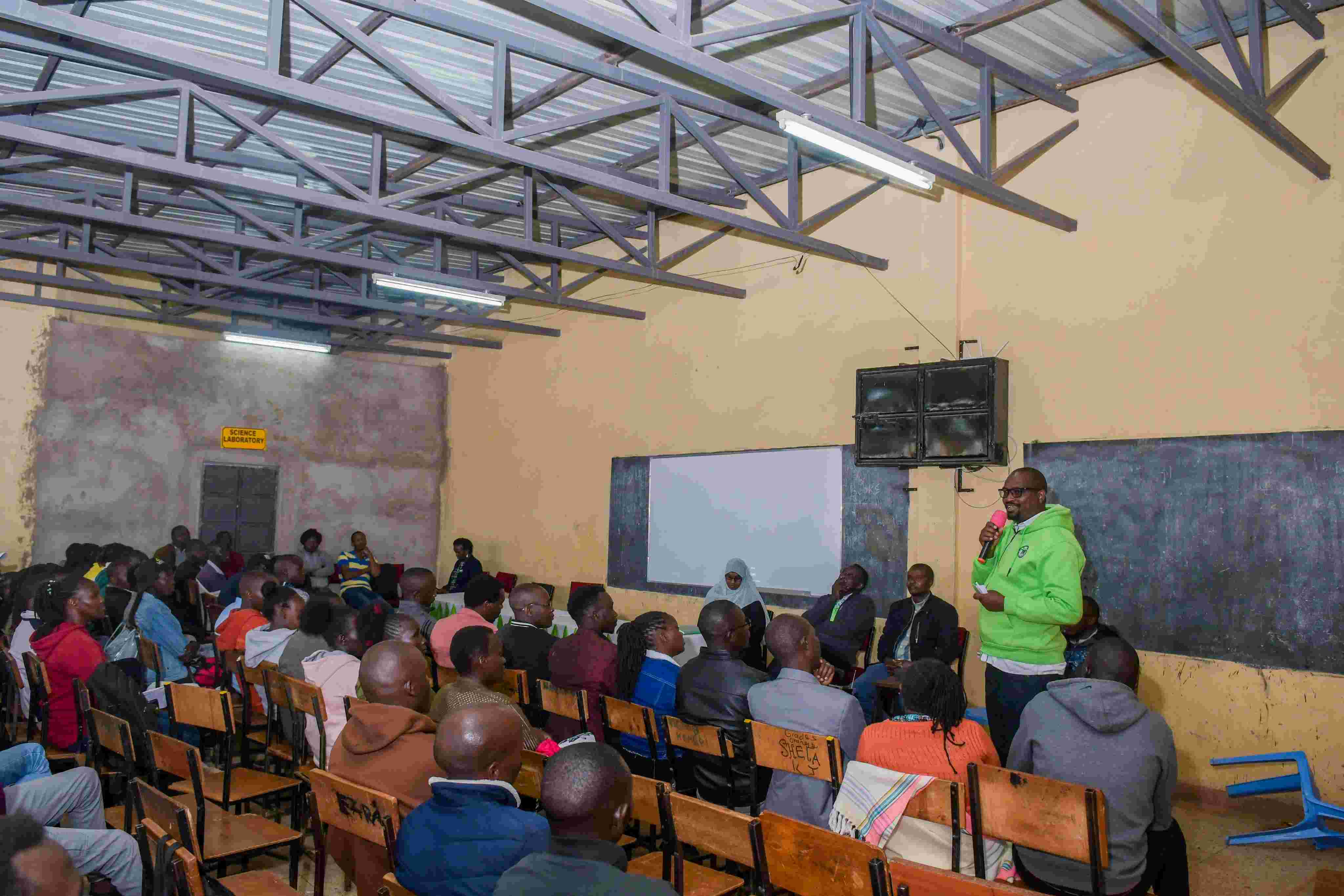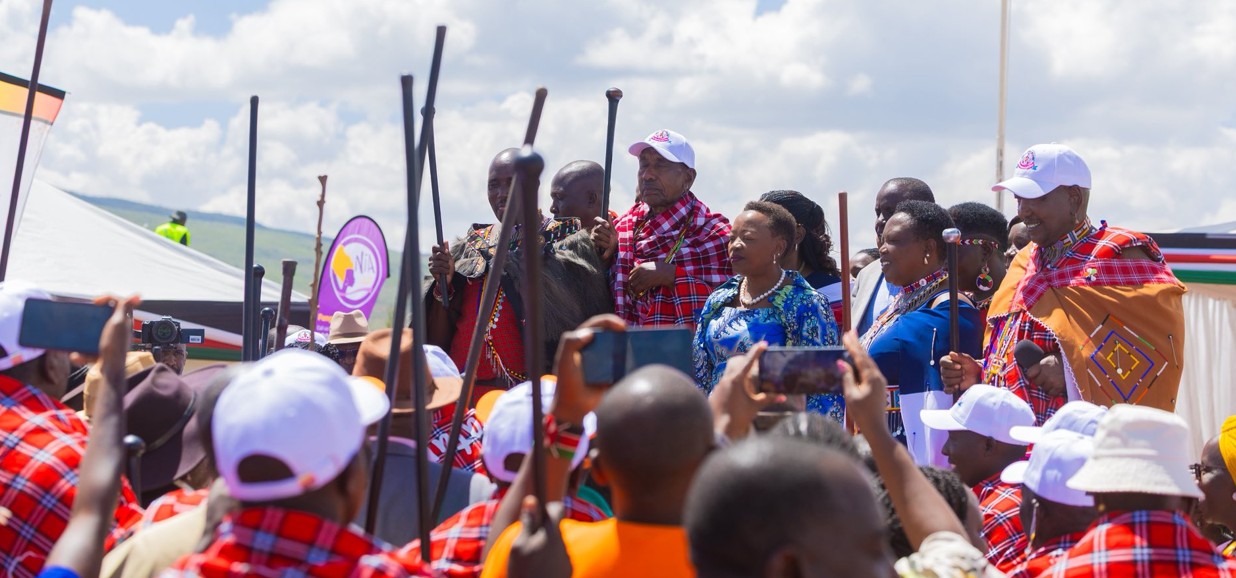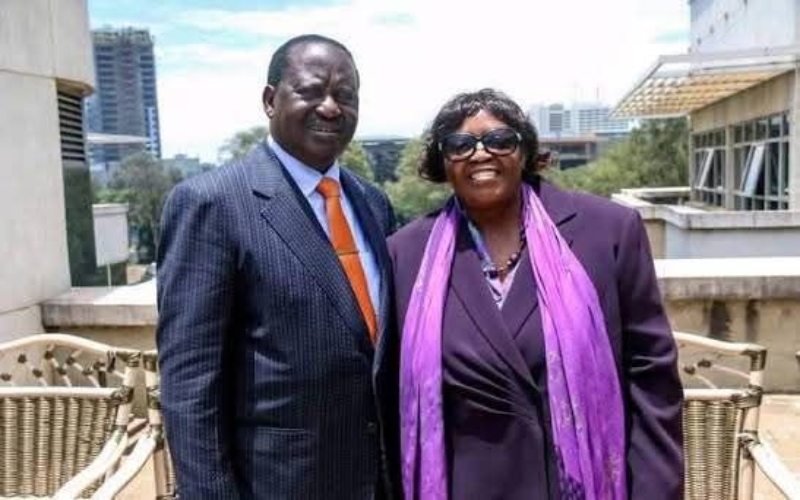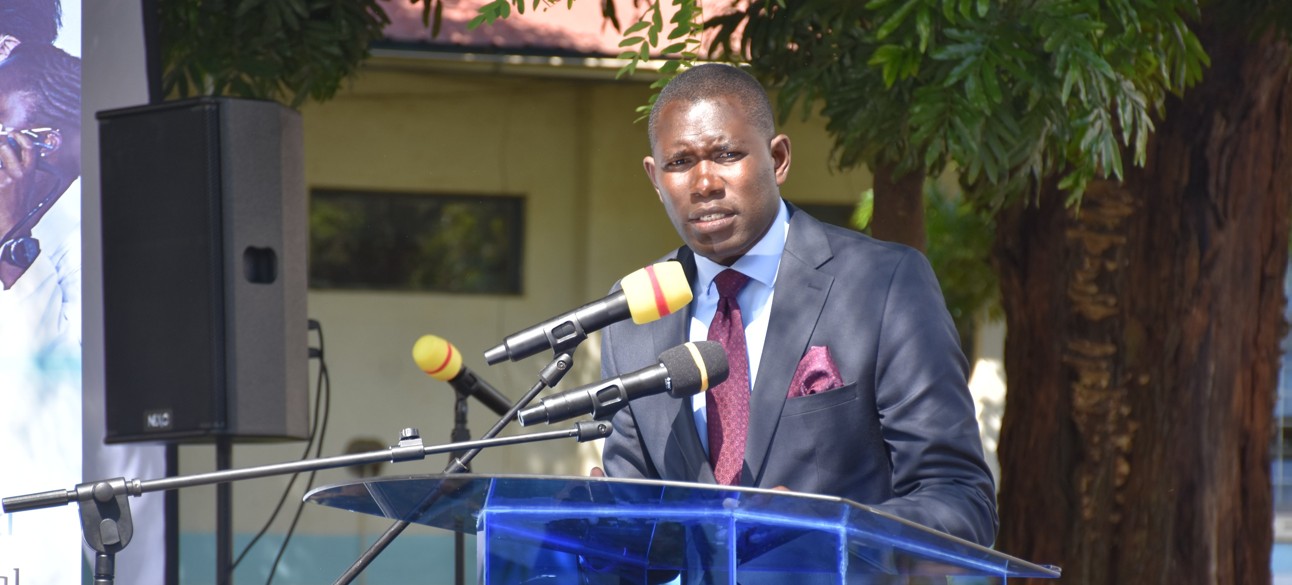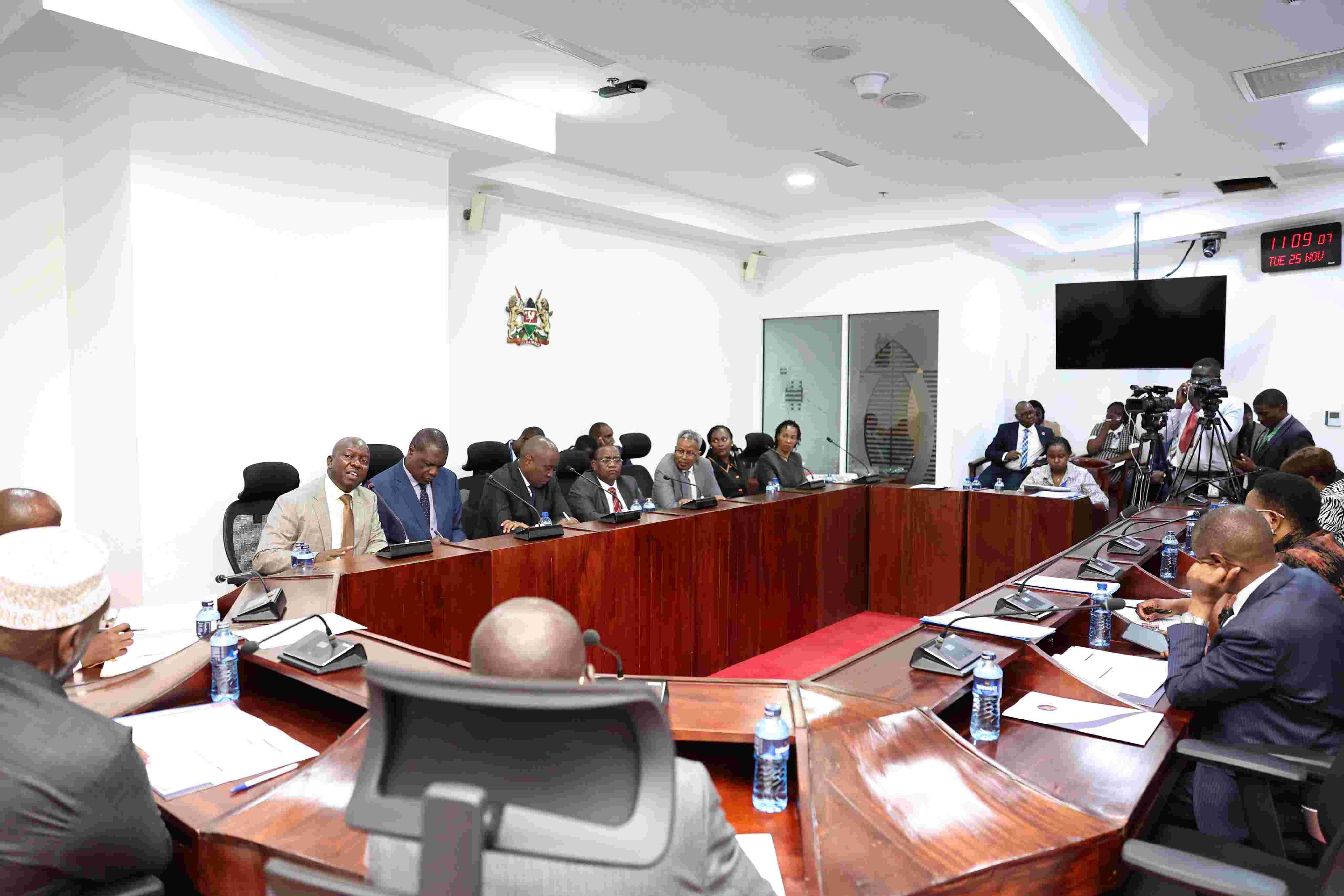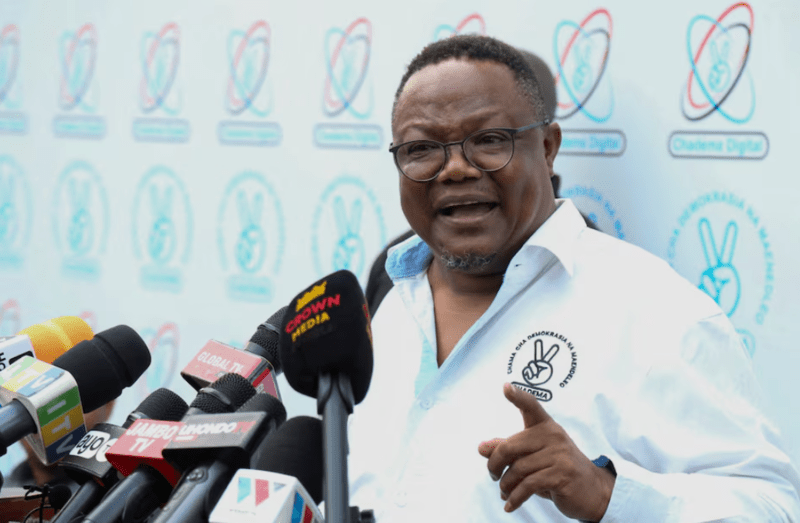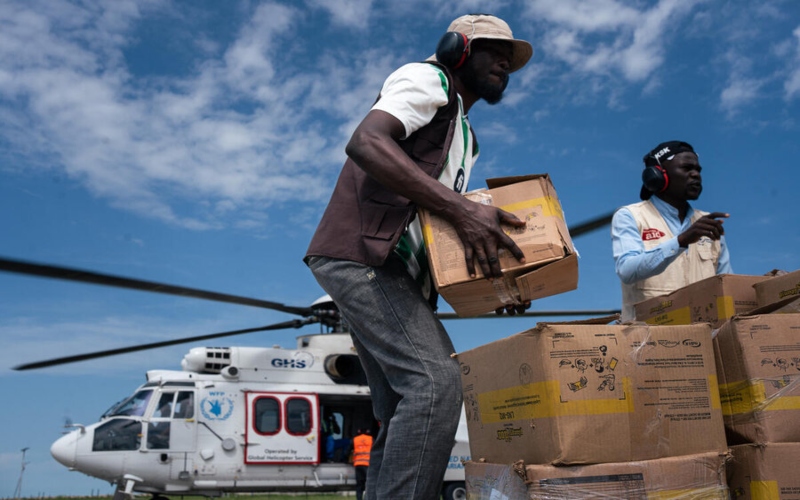Truckers face losses as armed gangs cash in on eastern DRC’s instability
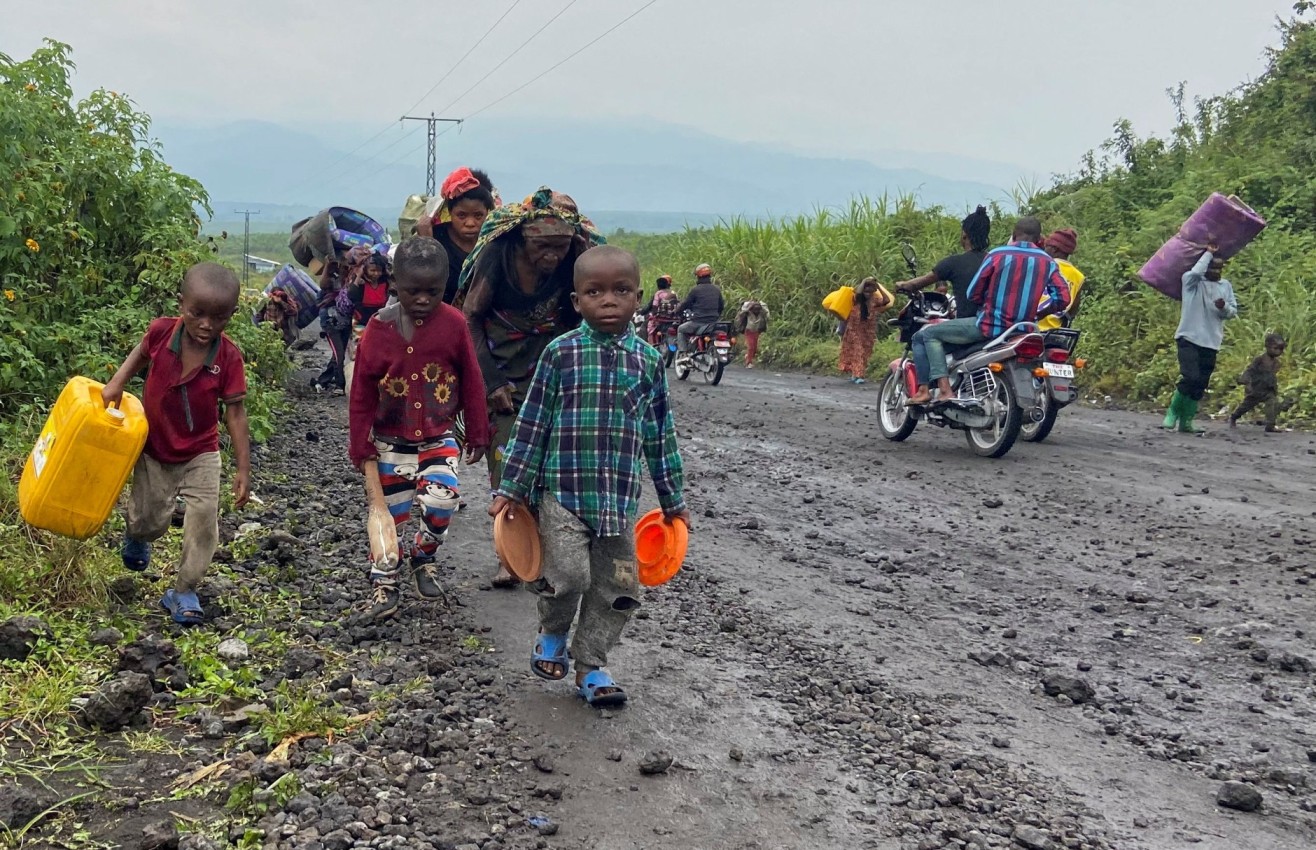
Transporters are no longer risking their new cargo trucks to cross into DRC, only using old trucks to cross into the troubled country.
The armed conflict in the eastern Democratic Republic of Congo (DRC) continues to expose traders to losses, as the insecurity caused by armed gangs and rebel attacks leads to a spike in the cost of transporting cargo to the hinterland.
Besides the high transport costs, traders who ply the route have had to pay for private security, which includes two security personnel and at least two other vehicles, to escort cargo into DRC, which drives up costs.
More To Read
- M23 rebels hands over minors taken from conflict zones in North Kivu, DRC
- UN decries ‘truly horrific’ massacres in DR Congo
- MONUSCO condemns ADF attacks that killed 89 civilians in North Kivu
- Rwanda, DR Congo talks move into ‘phase two’
- Truck that overturned in Uasin Gishu was ferrying natural rubber latex to DRC
- Over 5,000 Rwandans stream back from DR Congo after Qatar peace agreement
As fighting between the Congolese army and the M23 rebels bent on ousting the Kinshasa establishment continues, other armed characters have taken advantage of the fluid situation to waylay cargo trucks, burning some and robbing others, at times harming drivers.
This has forced some Rwandan, Ugandan, Kenyan, and Tanzanian transporters to abandon the route, while those who still operate have had to significantly increase costs due to the risks involved.
“The cost of transporting cargo has shot by 50 per cent due to the risks involved in crossing into the DRC. A few metres into the DRC can attract an additional $500 (Sh65,000). Many trucks no longer go into DRC; the risks are high. Some trucks are ambushed and drivers killed, so there is a hefty cost in risking going there,” said Derrick Bamwine, who manages transport companies that operate in the region.
He said many trucks transporting loose cargo offload it onto Congolese trucks on reaching the Rwanda-DRC border. However, this is not easy for containerised cargo from the port.
Besides the cost of risks arising from insecurity, cargo clearing delays, red tape, forgeries, and corruption by unscrupulous officials who take advantage of the fluid situation has also made business costly and untenable.
“Sometimes it takes two weeks or more for cargo to be released on the Congolese side. They have opaque clearing procedures, which cause major delays. The fact that DRC hasn’t fully integrated into the EAC single window system has added to the problems,” said Bamwine.
He said it’s not unusual for clients in Congo often refuse to pay. For this reason, they are asked to pay for their cargo before it crosses the border into DRC.
“Once it crosses over before payment, they turn on you or come up with tricks to dodge paying you,” said Bamwine.
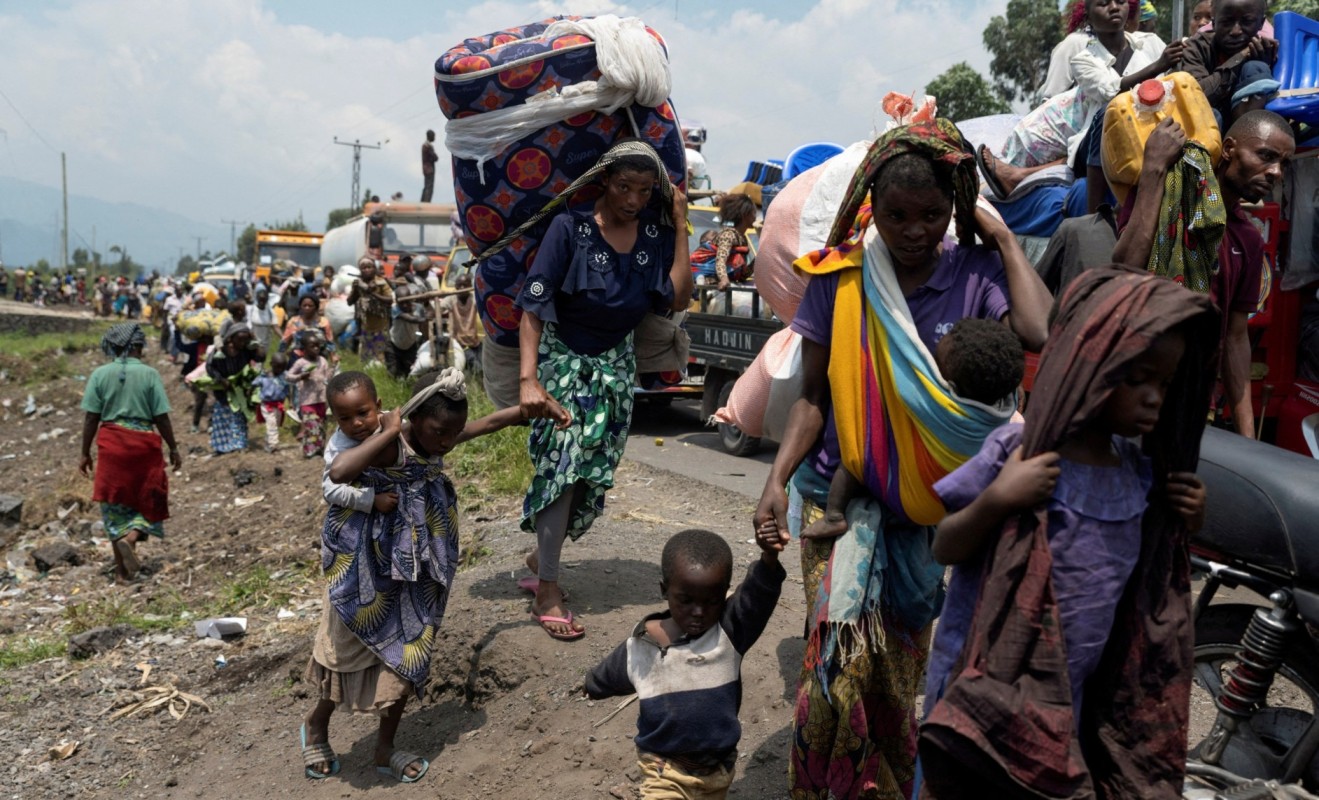 Congolese people carry their belongings as they flee from their villages around Sake, in Masisi territory, following clashes between M23 rebels and the Armed Forces of the Democratic Republic of Congo, toward Goma, North Kivu province, Democratic Republic of Congo, February 7, 2024. (Photo: REUTERS/Arlette BashiziFile Photo)
Congolese people carry their belongings as they flee from their villages around Sake, in Masisi territory, following clashes between M23 rebels and the Armed Forces of the Democratic Republic of Congo, toward Goma, North Kivu province, Democratic Republic of Congo, February 7, 2024. (Photo: REUTERS/Arlette BashiziFile Photo)Congolese people carry their belongings as they flee from their villages around Sake, in Masisi territory, following clashes between M23 rebels and the Armed Forces of the Democratic Republic of Congo, toward Goma, North Kivu province, Democratic Republic of Congo, February 7, 2024. (Photo: REUTERS/Arlette BashiziFile Photo)
Transporters are no longer risking their new cargo trucks to cross into DRC, only using old trucks to cross into the troubled country. The roads are rugged, further adding to the delays since some trucks break down on the way.
Just 10 kilometres after Goma, there is no guarantee of security. If truckers don’t encounter artificial roadblocks meant to extort transporters, they meet gun-wielding bandits or rebels who at times burn trucks and kill drivers.
The situation is the same for both Rubavu and Rusizi routes going into the DRC hinterland.
Besides the traders, the final consumers bear the burden of the huge costs associated with transporting goods through the volatile region. This comes at a time when inflation is rising steadily.
Other Topics To Read
While cargo tracking systems on trucks have been effective elsewhere in the region, they are non-operational when trucks cross into the DRC, unless a tracker is installed on a truck.
“Once a truck has a problem in the DRC, it is very difficult to send help or source support locally. This makes things even more worrisome for transporters,” said Bamwine.
Rwandan traders have borne the brunt of the conflict since relations between the two countries soured to the point that some suspended their trade with DRC while others continue to incur losses.
DRC-bound trucks that used to ply the route day and night carrying goods have significantly reduced.
“Rwandan goods going to DRC have significantly reduced. It's even harder getting transporters to take cargo to DRC from Rwanda. For instance, I have a consignment to take there but everyone I contact is reluctant,” said Julie Mutoni, the Rwanda country director of Multilines International, a cargo freight and logistics company.
DRC has been Rwanda’s biggest trading partner, at one point accounting for 96 per cent of Rwanda’s total re-exports, with total annual trade valued at more than $800 million in the recent past.
Rwandan exporters take goods ranging from foodstuffs, dairy and poultry products, beverages, medical supplies, toiletries, and petroleum products and have grown a big client base in DRC. But most of this trade has since stalled.
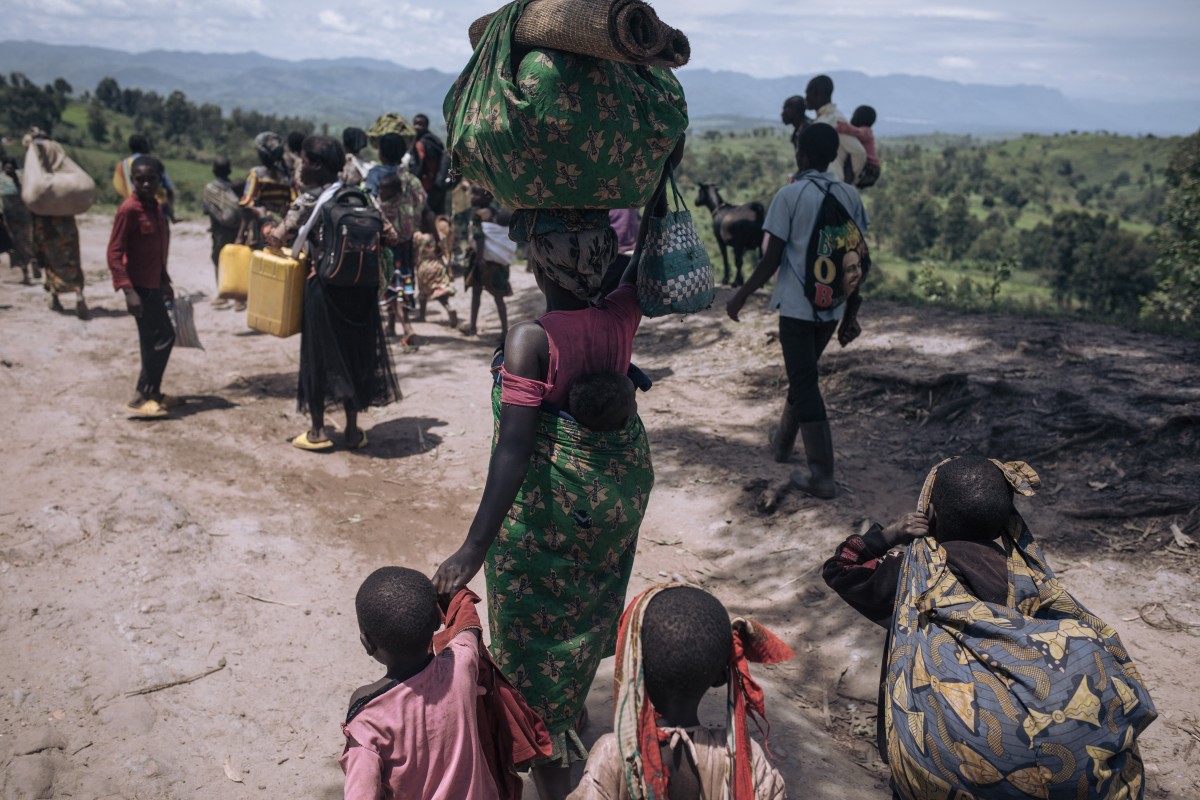 Residents of Bambo in Rutshuru territory, 60 kilometers north of Goma, the capital of North Kivu, eastern Democratic Republic of Congo, flee as the M23 attacked the town on October 26, 2023. (Photo by ALEXIS HUGUET / AFP)
Residents of Bambo in Rutshuru territory, 60 kilometers north of Goma, the capital of North Kivu, eastern Democratic Republic of Congo, flee as the M23 attacked the town on October 26, 2023. (Photo by ALEXIS HUGUET / AFP)
“The situation is very bad. Trucks are hijacked on the way, sometimes by rebels, gangs or even police, and in all these cases, we are extorted. We are losing a lot of money, and some people have stopped going there,” said Faziri Murangira Murefu, a Rwandan transporter.
On July 30, Angola secured a new ceasefire deal in the Eastern DRC in renewed diplomatic efforts to stop fighting and an inflaming, long-running war of words between Kinshasa and Kigali.
The decision was arrived at in Luanda, where top diplomats from Rwanda and the DRC had gathered on the invitation of their host, Angola. The new ceasefire between the Congolese army, FARDC, and the M23 rebels was to start at midnight on August 4.
This might bring much-needed reprieve in a war that was tittering on morphing into a full-blown regional conflict, involving other East African countries, threatening more loss of lives, destruction of property, and worsening the region's refugee problem.
DRC, the USA and the UN have often accused Rwanda of backing the rebels, allegations Kigali continues to deny.
Top Stories Today
